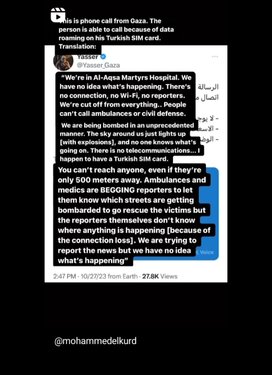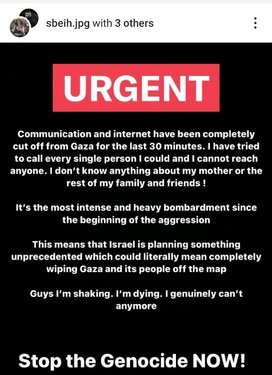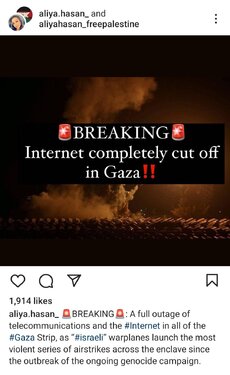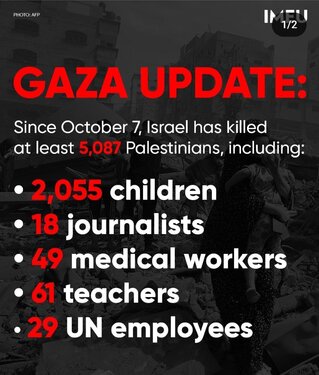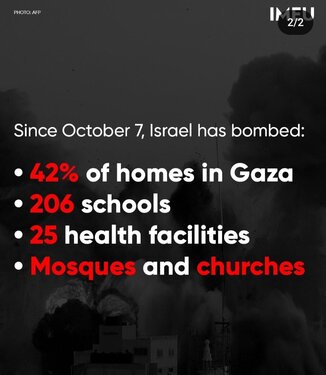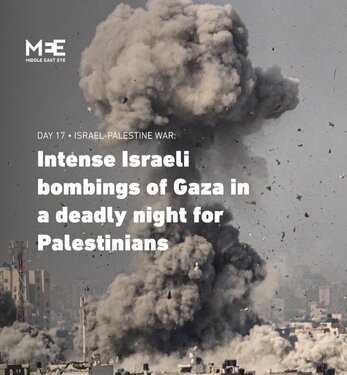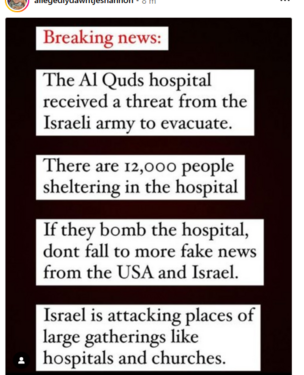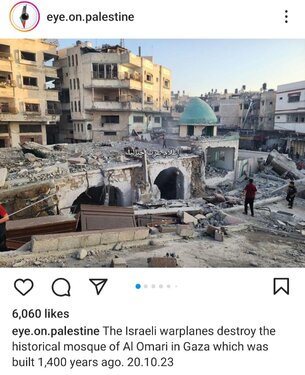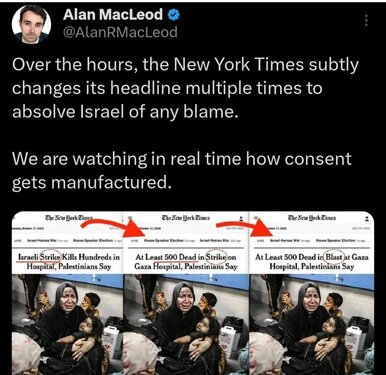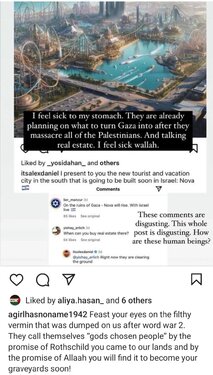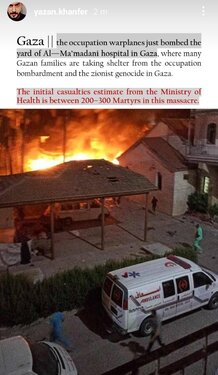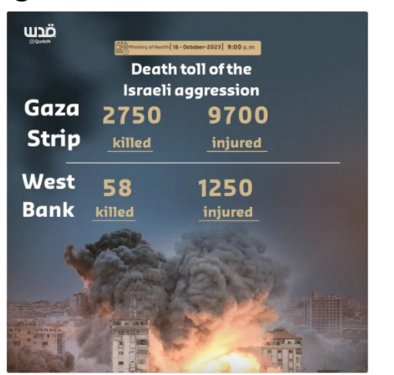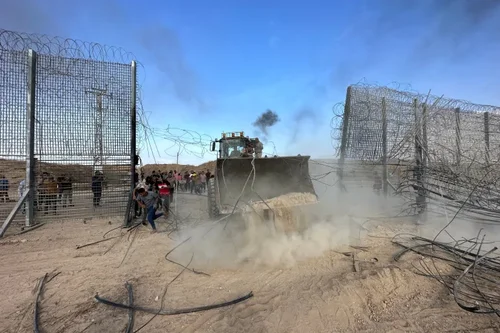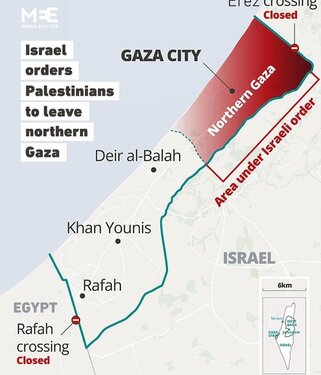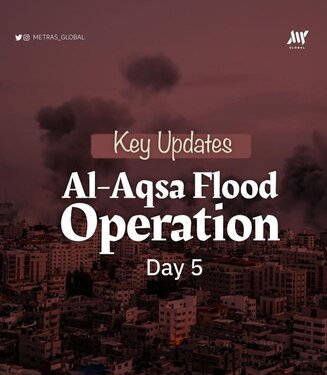-
Posts
8,466 -
Joined
-
Days Won
773
Content Type
Profiles
Forums
Events
Everything posted by ummtaalib
-
The name of Salaahuddeen Ayyoobi (rahimahullah) is synonymous with Palestine and Masjidul Aqsa. It is a name which brings great joy to the heart of a Muslim even today and refreshens the memories of the conquest and liberation of Masjidul Aqsa after a barbaric eighty-eight-year rule by the Christians. This conquest, however, was a culmination and fruition of many years of effort and determination, supported by a high level of spirituality and a strong connection with Allah Ta‘ala. Not long after Salaahudden (rahimahullah) had liberated Masjidul Aqsa, the army of the Franks once came to a place named Bayt Noobah which was less than one day’s journey from Jerusalem. The spies of Salaahuddeen (rahimahullah) came to him and informed him that the disbelievers had resolved to march on Jerusalem and fight for the city. This news created fear in the hearts of many of the Muslims. Salaahuddeen (rahimahullah) summoned the various Muslim leaders, informed them of the situation and told them that he felt that the Muslims should remain in Jerusalem and defend the city. The leaders told him that they would remain in the city, but he should go out to surround the enemy and cut off their supply of provisions. From their response, Salaahuddeen (rahimahullah) gauged that they wished him to leave, as they did not want to defend the city. The lack of support of these leaders left him in a severe predicament, and he did not know what to do. He was overcome by worry and concern to the extent that he did not sleep the entire night. Finally, the following morning – which was a Friday morning – after the Fajr Salaah, an Aalim with whom he enjoyed a very close association, Ibnu Shaddaad (rahimahullah), said to him, “I have an idea that may help us solve our problem.” Ibnu Shaddaad (rahimahullah) then told Salaahuddeen (rahimahullah) that after he took the Sunnah Ghusl of Jumuah, before performing the Salaah in the Masjid, he should give some charity in secret. Thereafter, between the Azaan and Iqaamah of the Jumuah, he should perform two Rakaats of Salaah, engage in Dua in his Sajdah and beg Allah Ta‘ala to help him, (as Duas are accepted between the Azaan and Iqaamah over and above the fact that it was the occasion of Jumuah). He also advised him to beg Allah Ta‘ala thus, “O Allah, my worldly means of helping your Deen have been depleted. The only option that remains is turning to you, holding firm on Your rope and reliance on Your grace. You are sufficient for me and what an excellent Disposer of affairs (You are).” Salaahuddeen (rahimahullah) took his advice to heart and engaged in Dua, expressing such helplessness and desperation before Allah Ta‘ala that his tears flowed onto the Musalla. Allah Ta‘ala accepted his Dua and granted him divine assistance. He created dissension and disunity between the disbelievers, and as a result, by Monday morning, they all departed the area. (An-Nawaadirus Sultaaniyyah pg. 38) Lessons: 1. Whenever a believer is going through any difficulty, no matter how severe it may be, he always has a recourse – turning to Allah Ta‘ala in Dua. In fact, Dua is the greatest recourse and weapon, as Rasulullah (sallallahu ‘alaihi wasallam) said on one occasion, “Should I not show you something that will save you from your enemies and increase your sustenance? Make Dua to Allah Ta‘ala day and night. For indeed, Dua is the weapon of a believer.” (Abu Ya’laa – Majma‘uz Zawaaid #17153) Hence, whenever we are faced with any difficulty, especially the current plight of the Ummah in Palestine and worldwide, we should turn to Allah Ta‘ala in Dua as this is the most effective weapon and recourse of a believer. How unfortunate it is nowadays, that we involve ourselves in unnecessary discussions regarding the plight of the Ummah, spend multiple hours in following the latest news updates, and we knock on every other door, before realizing that there is only one door and there is only One Being whose attention we need – Allah Ta‘ala. 2. Keeping in close contact with pious ‘Ulama and taking their advice seriously is a means of getting the divine closeness of Allah Ta‘ala and protecting oneself from making incorrect decisions. This aspect was found to a great extent in the life of Salaahuddeen (rahimahullah), as well as in many other upright leaders of the Muslim Ummah. We too should keep in contact with our pious ‘Ulama by listening to their talks and taking their advice. 3. Whilst Salaahuddeen (rahimahullah) possessed great leadership skills and military expertise, the secret to his success was undoubtedly the special connection with Allah Ta‘ala which he enjoyed. Hence, at a time when his army did not offer him the support which he desired, and he had no other recourse, begging and imploring Allah Ta‘ala once was sufficient to turn the tide in his favour and chase away the disbelievers. UswatulMuslimah
-
Message from Abu Ubaida, the Izzideen al-Qassam Brigades spokesperson Speaking live on Saturday, Abu Ubaida, the Izzideen al-Qassam Brigades spokesperson, said that “Israeli bombing has killed 50 of their captives so far”, and that “Israel knows the cost of freeing their hostages”. “The cost of the hostages is to free all Palestinians from Israeli jails,” he said. Abu Ubaida said that the war was a “turning point in history and in the freedom of Palestine”. “We reiterate to Israel, who are threatening daily about a ground invasion, we wait for you, we will teach you and the world what true strength looks like. We will meet you with strength you cannot imagine, we have embarrassed you in front of the world.” www.instagram.com/p/Cy8tnxiIqqS/
-
Growing up, as young children aged six or seven, we had the run of the home. Since we were still small, we felt that the laws of purdah between strange males and females did not pertain to us, and hence if there were visitors at home, we could enter both the men’s and women’s section of the house. In fact, this was quite convenient as we could then help to serve the visitors, assist with clearing up, etc. However, as time passed, we grew up and eventually crossed the threshold of puberty and maturity. Now, we were no longer small children, but were regarded as adults in regard to the laws of the Sharee‘ah. The problem though is that many of the old men and women before whom we grew up still claimed to view us as children. If we attempted to make purdah from them – as we rightfully should – they would protest and say, “But he/she grew up in front of me! I saw him/her when he/she was still in diapers!” They themselves gave the answer to their objection but failed to see it - the child GREW UP and is no longer a child. This situation, where an older person feels that there is no need to observe purdah as the child grew up in front of him (or her), is common with elder cousins, the wives of maternal or paternal uncles (from whom the uncle’s nephews should adopt purdah), and with the husbands of paternal and maternal aunts (from whom the nieces should adopt purdah), as well as with old family friends and acquaintances. Unfortunately, even when the young boy or girl reaches the age of fifteen or sixteen, and their bodies are already well developed, they are still sometimes called to give the ‘aunty’ or ‘uncle’ a hug – all in the name of ‘family ties’ and being ‘courteous’. Thereafter, if the boy or girl refuses or displays reluctance, then sadly, it is often their own parents who scold them and attempt to pressurise them into ‘making aunty or uncle happy’. In an attempt to justify and condone this shameful behaviour, the ‘aunty’ or ‘uncle’ will claim that their hearts are clean, and they may even attempt to pin the blame on the youngster saying, “How can you suspect me of having evil intentions?” The reality of the matter though, is that no matter how ‘clean’ the person claims his heart may be, it can never be cleaner and purer than the hearts of the Sahaabah (radhiyallahu ‘anhum) – yet they adopted this type of purdah in their lives, teaching the Ummah that the laws of purdah apply equally to one and all, and a person feeling that he has a ‘clean heart’ does not exempt him from the laws of purdah. At the time when Rasulullah (sallallahu ‘alaihi wasallam) performed Hijrah and arrived in Madeenah Munawwarah, Sayyiduna Anas (radhiyallahu ‘anhu) was a young boy, approximately eight years of age. His respected mother, Sayyidah Ummu Sulaim (radhiyallahu ‘anha), brought him to Rasulullah (sallallahu ‘alaihi wasallam) and said, “O Rasul of Allah (sallallahu ‘alaihi wasallam)! There is no man or woman of the Ansaar who has not presented you with a gift. However, I do not have anything to present to you as a gift besides my son. Therefore, (please) accept him for your service.” Rasulullah (sallallahu ‘alaihi wasallam) accepted him, and in this manner, Sayyiduna Anas (radhiyallahu ‘anhu) was blessed to remain in the close company of Rasulullah (sallallahu ‘alaihi wasallam) as his special attendant for ten years, until Rasulullah (sallallahu ‘alaihi wasallam) departed from this world. (Majma‘uz Zawaaid #1494) In the initial stages after the hijrah, the laws of purdah and hijaab had still not been revealed. Hence, while in the service of Rasulullah (sallallahu ‘alaihi wasallam) at that time, Sayyiduna Anas (radhiyallahu ‘anhu), who was still young, would enter the home of Rasulullah (sallallahu ‘alaihi wasallam) in order to serve him. However, in the year 4 A.H. or 5 A.H., on the occasion of the waleemah of Sayyidah Zainab bintu Jahsh (radhiyallahu ‘anha), the verses containing the command of purdah were revealed. Sayyiduna Anas (radhiyallahu ‘anhu), who would have been approximately 13 or 14 years old at that time, mentions that as soon as these verses were revealed, Rasulullah (sallallahu ‘alaihi wasallam) lowered the curtain at the doorway of his home and did not allow Sayyiduna Anas (radhiyallahu ‘anhu) to enter the home. (Saheeh Muslim #3502) UswatulMuslimah
-
Look at these quotes by top 'islaeli' officials Shaun King (@shaunking) • Instagram photos and videos And ask yourself why these quotes, in essence with the top officials in Israel openly admitting war crimes and genocide, are not in the American media. These are Israeli government officials openly admitting ethnic cleansing and the violation of international law.
-
Israel has killed over 5,000 Palestinians in Gaza since October 7th, including 2,055 children. At least 1500 more Palestinians are missing, likely trapped under rubble from Israel’s indiscriminate bombings. Still, Israel continues to intensely bomb Gaza – killing and displacing Palestinians, destroying essential infrastructure, and turning Gaza to rubble. Israel is committing war crime after war crime, with the US’ full support. That needs to end, now. To take action against Israel’s violent onslaught, call your representatives to demand an immediate ceasefire, organize/attend a protest, post on social media, and speak to your friends & family.
-
Monday morning saw some of the most intense and deadly Israeli bombings of Gaza since the latest conflict between Israel and armed Palestinian groups began on 7 October. Here’s what you may have missed over the past few hours: • So far, at least 400 Palestinians have been killed over the past 24 hours, and that number has the potential to rise as medical teams and rescue workers assess the full damage of the air strikes last night • One Israeli air strike on the Jabalia refugee camp killed around 30 Palestinians. • Dozens of Palestinians have been arrested across the occupied West Bank as Israeli forces launched a number of raids near Ramallah, Hebron, and Jericho • Western leaders, including US President Joe Biden, released a statement in which they reaffirmed Israel’s right to defend itself before going on to urge for the protection of civilians • Gaza’s hospitals are almost out of anaesthesia, in addition to fuel and other other necessary supplies • Israeli air strikes have also hit near two hospitals: al-Shifa and al-Quds Middle East Eye (@middleeasteye) • Instagram photos and videos
-
From the Horse’s Mouth Sayyiduna ‘Amr bin ‘Aas (radhiyallahu ‘anhu) narrates the following: An army of the Muslims, over whom I was appointed as a leader, once set out to fight in the path of Allah Ta‘ala. We continued to travel until we came to the city of Alexandria. On reaching Alexandria, the leader of the city announced to us, “Send someone from your army to me so that I may converse with him.” When I heard this request, I immediately said, “Nobody but I will go to him.” I thus emerged from the camp and went to meet him. The city leader and I had translators assisting us. Two pulpits were placed for us and we thus sat. The leader then asked: “Who are you people?” I replied: “We are Arabs. We are the people of thorns and Acacia trees. We are the people of the Ka’bah. We are the people who had the smallest land and the most difficult lives. We would consume carrion and some of us would attack and wage war with others. We were living the most despicable lives that people could possibly live. This continued to be our plight until a man emerged from among us, who was neither the most influential at that time nor the wealthiest. He said, ‘I am the Messenger of Allah (sallallahu ‘alaihi wasallam).’ He then began to prohibit us from the acts that we were perpetrating and those which we had found our forefathers perpetrating. Hence, we resented him, belied him and rejected his message, until another group of people, besides us, came to him. They said to him, ‘We believe in you, we will follow you and we will fight whoever fights against you.’ He thus left Makkah Mukarramah and migrated to them, and we went after him. We thereafter fought against him, resulting in him killing us, defeating us and overpowering us. The other Arabs in the nearby areas also rose against him, so he fought against them until he conquered them.” When the leader of Alexandria heard this, he began to laugh. He thereafter said: “Indeed, your messenger spoke the truth. Our messengers also came to us with messages similar to that which your messenger brought to you. We adhered firmly to their message and their teachings, until kings emerged among us. These kings did as they pleased and abandoned the teachings of the messengers. If you hold fast to the teachings of your Nabi, nobody will wage war against you except that you will defeat him, and nobody will rise against you except that you will overpower him. However, as soon as you do as we did, by abandoning the teachings of your Nabi, and you behave as we did by obeying your desires, then we will be left to each other (i.e. you will not enjoy the divine assistance of Allah Ta‘ala). In that case, you will neither be greater than us in number nor stronger or more powerful than we are.” Sayyiduna ‘Amr bin ‘Aas (radhiyallahu ‘anhu) later remarked, “I never spoke to a man (from the disbelievers) as intelligent as him.” (Tabraani – Majma‘uz Zawaaid #10437) Lessons: 1. When the leader requested to engage in discussion with a Muslim, Sayyiduna ‘Amr bin ‘Aas (radhiyallahu ‘anhu) ensured that he went to him personally. The most probable reason behind this was that the person who met and conversed with the leader would, in reality, be representing Islam. His conduct, speech and the mind-set that he portrayed would be construed as being the values and way of Islam. In a similar manner, each and every one of us is a flag bearer of Islam and a representative of Muslims at large. If we behave poorly, dishonestly, greedily, mercilessly, etc., then those who interact with us will inevitably reach the conclusion that ‘Muslims’ have these evil qualities. On the other hand, if we embrace the character of Islam, those around us will definitely be attracted to Islam and many of them will even embrace Islam. 2. The Muslim Ummah constantly faces tests and challenges of varying natures. Whether the challenge is in the form of a natural disaster, a war, xenophobia, financial troubles, political instability or civil unrest, the natural response of people is to try and find a solution to the problem. In this regard, some people feel that the solution is for the Muslims to have a strong political presence, others feel that the solution lies in empowering the youth with education, while yet others feel that the solution is for the Muslims to have military muscle and financial pull. However, the true solution can only be found when the root cause is correctly identified. In this incident, the disbelieving leader himself told the Muslims the solution – as long as they hold firmly to Islam and the sunnah of Rasulullah (sallallahu ‘alaihi wasallam), they will enjoy the divine assistance of Allah Ta‘ala and will be undefeated. However, if they abandon the teachings of Islam and Rasulullah (sallallahu ‘alaihi wasallam), remaining Muslims in name alone, they will lose the divine aid of Allah Ta‘ala. The Sahaabah (radhiyallahu anhum) enjoyed Allah Ta‘ala’s aid and achieved victory and success, even though they did not always have the apparent means. Without this vital ingredient of Allah Ta‘ala’s aid, even if we have the apparent means, it will be wishful thinking for us to hope that the Ummah can once again enjoy its former glory. UswatulMuslimah
-
Places of worship not safe One of the oldest churches in Gaza is the "Church of St. Porphyrius," which is an ancient Orthodox Christian church. The construction of this church dates back to the Middle Ages, specifically the 15th century. The Church of St. Porphyrius is considered an important historical landmark in Gaza and a site for prayers and religious activities. www.instagram.com/p/CynGjz2IwAB/ The Israeli warplanes destroy the historical mosque of Al Omari in Gaza which was built 1,400 years ago. 20.10.23
-
-
-
The UN agency dedicated to Palestinian refugees, Unrwa, says it is no longer able to help the more than two million people trapped in the Gaza Strip. “Gaza is running out of water, and Gaza is running out of life. Soon, I believe, with this, there will be no food or medicine either,” Unrwa Commissioner General Philippe Lazzarini said in a statement. “In fact, Gaza is being strangled and it seems that the world right now has lost its humanity.” At least 14 Unrwa staff members have been killed and most of their 13,000-person staff in Gaza are displaced or out of their homes, he added. “There is not one drop of water, not one grain of wheat, not a litre of fuel that has been allowed into the Gaza Strip for the last eight days,” he said. “The number of people seeking shelter in our schools and other Unrwa facilities in the south is absolutely overwhelming, and we do not have any more the capacity to deal with them.” middleeasteye
-
On October 7, Gaza broke out of prison What the images of the Gaza border fence coming down meant for Palestinians. Mariam Barghouti Palestinian American writer based in Ramallah In the early morning hours of Saturday, October 7, Palestinians across the West Bank woke up to the sound of explosions. No one really knew what was happening until reports started trickling in that fighters from Gaza had taken control of Beit Hanoun crossing – the only one through which Gaza residents may reach the rest of historic Palestine on the extremely rare occasions the occupier allows them to. Soon information appeared on social media that the wall that Israel had erected around the Gaza Strip to keep its 2.3 million people permanently imprisoned had been breached. And then came the images and footage of the broken wall. In one video, showing a bulldozer bringing down the wall, a Palestinian man can be heard chanting in exhilaration: “Yes, go! Allahu Akbar [God is the Greatest]! Hit it, guys! Rest in peace, wall!” It was unbelievable. It felt surreal. We wondered how it was possible that the people of Gaza had broken out of their prison. Few in the world would understand our feelings in that moment. Perhaps political prisoners might. The vast majority of the Palestinian population remaining in historic Palestine has been born in prison and only knows prison. Gaza is completely sealed off from the rest of the world by Israel’s apartheid wall and subjected to a debilitating siege, in which its neighbour Egypt happily partakes. In the occupied West Bank, all entry and exit points of every Palestinian village, town, and city are controlled by the Israeli occupation forces; Palestinians – unlike the Israeli settlers stealing their land – have no freedom of movement. Our imprisonment also features prison labour. With the Israeli occupation suffocating the Palestinian economy and the resulting high unemployment rate, Palestinians are forced to seek work from their prison wardens. The Israeli authorities, of course, strictly control this process, issuing Palestinians “work permits” and often arbitrarily revoking them. As in a real prison, we are also subjected to round-the-clock surveillance through cameras in public places, drones, the tapping of phones and telecommunications, a network of infiltrators and spies, etc. And of course, just like prisoners, we are “punished” for “misbehaving”. In Gaza, punishment means indiscriminate bombardment of densely populated areas that always results in the mass killing of civilians. In the West Bank, we are subjected to “search-and-arrest raids” on a nightly basis, where occupiers invade our homes, brutalise our loved ones in front of terrified children and take them away (sometimes the children themselves) to detain them indefinitely without charge. Shooting dead Palestinian civilians in those raids is, of course, a regular occurrence. In this context, seeing those images and videos of the prison wall torn down in Gaza is liberating. Their symbolic power cannot be overstated. We felt the same exhilaration back in 2021 when we heard the news that six Palestinian political prisoners had broken out of Israeli prison. They had dug a tunnel out of jail using spoons, pieces of metal, and loads of patience. That prison break became an emblem of Palestinian perseverance. Palestinians cheered on the prisoners as they evaded their prison wardens for days. We celebrated their simple acts of savouring freedom – eating a prickly pear for the first time in 20 years, hugging a cow, walking in the hills of Nazareth. We breathed freedom with them, as if we were also free. The liberating feeling of breaking out of prison has also come from our brave imprisoned hunger strikers. In 2011, Khader Adnan, who had been detained by the Israelis on and off without a charge for a decade, started a hunger strike against yet another unjust detention. He was joined by hundreds of Palestinian prisoners. Despite threats and mistreatment, he persevered until enough pressure built up and Israel was forced to release him. We also celebrated Adnan’s freedom as if it were our own. These brief moments of rupture in our reality of imprisonment are at once terrifying and exhilarating. Of course, they are always short-lived – brief instances of Palestinian triumph before the unbearable weight of Israeli military domination comes back crushing us. The initial euphoria of seeing the apartheid wall come down in Gaza was quickly overtaken by the terrifying realisation of what would come next. We knew war broke out the moment Palestinians in Gaza broke out of their Israeli prison. My conversations with peers and friends, my group chats, phone calls – all were dominated by the same dark premonition: “They are going to kill us all.” We know, from direct experience, what Israel’s policy of revenge means. We also know that no matter what savagery its army commits, the West would “stand by” it and point to “Palestinian crimes”. Israel had waged five wars on Gaza, each time mass killing Palestinian civilians as Western leaders justified the slaughter with the familiar mantra “Israel has the right to defend itself.” And of course, that is exactly what is happening now. Israel is carpet bombing Gaza. It has imposed a full blockade on Gaza, with no water, electricity, food or medicine entering the Strip. Telecommunications infrastructure has been bombarded, effectively cutting off Palestinians in Gaza from the rest of the world. Meanwhile, the West Bank has been completely blocked; checkpoints closed all across, effectively paralysing the whole territory. Israeli soldiers are shooting Palestinians and encouraging settlers to do so as well. And yet, the West is “standing by” its ally, Israel, and its “right to defend itself” from the people it brutally occupies and oppresses. Western nations are lapping up Israeli propaganda, that it is fighting “Islamic terrorism”, that “Hamas is ISIS”, that Palestinians are “sub-human”, that they are “beheading babies”. All pretences of morality, logic and truth have been dropped in order to justify the mass killing of Palestinians. In the past seven days, the Israeli army has killed more than 2,200 Palestinians in Gaza, including 600 children. Its soldiers have murdered at least 53 Palestinians in the West Bank. Since the start of the year, 250 others have been killed, making it the most lethal year since the United Nations began documenting fatalities in 2004-2005. All of this we expected. All of this still is painful and horrifying. All of this will go down into Palestinian history as yet another episode of resistance by the Palestinians and mass slaughter and ethnic cleansing by Israel. However, unlike other moments in Palestinian history, something is different this time. Not only did Palestinians manage to break free from their prison in Gaza – albeit for a short while – but also for the first time, they dealt a blow that will have a far-reaching impact. The Palestinians have struck Israel where it has struck Palestinians for more than 75 years: lives and land. The Israeli arrogance and sense of security that it can oppress, kill and steal land with impunity have been shattered. We’ve been held hostage by Israel for decades. We’ve been prisoners in our land for generations. But this October, the wimpy kid finally got his punch and the bully is now shaken. As our oppressors are out killing indiscriminately in blind rage, an uncomfortable feeling is creeping in among them that the prison they are holding us in is starting to crumble. Source
-
“There has never been a clearer sign that not only is Israel prepared to commit war crimes, it is about to commit a crime against humanity” Israel’s military on Friday ordered all civilians in northern Gaza, more than 1 million people, to move to the south of the besieged enclave within 24 hours. Jan Egeland, secretary general of the Norwegian Refugee Council, said “absent of any guarantees or safety or return”, the Israeli demand would amount to the war crime of forcible transfer. “It must be reversed,” he said. Tayab Ali, director of the International Centre of Justice for Palestinians (ICJP), told Good Morning Scotland: “One million people are being told to leave or die from what is effectively an open-air prison camp.” There is already clear evidence that war crimes have been committed over the past week in Israel and the Gaza Strip, legal experts and human rights groups have said. So what crimes may have already been committed and what prospects are there for accountability? Middle East Eye (@middleeasteye) • Instagram photos and videos
-
‘israel's’ latest b*mbing of Gaza has accompanied a serious disinformation campaign. Here are four examples: 1. It was claimed that ‘israeli’ soldier Shani Louk was r*ped and kiIIed by Palestinian fighters. It turns out she is alive and in hospital in Gaza. 2. It was claimed that H*mas had beh*aded up to 40 babies but turned out that the ‘israeli’ Army had no evidence of it. 3. It was claimed that Palestinians had captured ‘israeli’ children and kept them in cages but actually the footage was of ‘israeli’ soldiers keeping Palestinian children in cages. 4. A tweet went viral claiming that Palestinians had cut open a pregnant woman's stomach and left the baby to die but it turns out that was a story from the massacre at Sabra and Shatila in 1982 committed by ‘israel’ against a Palestinian Woman. Post from @mintpress
-
The Palestinian Resistance bombed Haifa with an R160 missile (154 aerial km), which is the furthest range the missiles have reached since the start of the Battle, which indicates a specific missile capability that the Resistance is using and gradually revealing. 💢For the fifth day, the Palestinian Resistance clashed with the Occupation inside the Gaza envelope settlements, some of them in Sderot, and others moved from the Zikim base to Ashkelon, casting doubt on the claims of regaining the Occupation’s control over the Envelope. 💢The death toll of the Israelis has risen to 1,300 since the start of Al-Aqsa Flood Battle. 💢The Israeli Occupation aircraft continues its extermination war on Gaza, targeting residential buildings, and committing 23 massacres that caused the martyrdom of about 160 Palestinians, most being children and women. 💢The death toll of Palestinians, as a result of the continued violent and intense Israeli bombardment on various areas of Gaza, rose to about 1,100 and 5,339 injured. 💢Medical teams warned of losing the ability to deal with the injured due to the Occupation deliberately targeting hospitals and their surroundings, killing 11 of the medical teams. 💢In addition to the shortage of medicines and medical materials, and most importantly, of electricity and water, it is expected that fuel stocks for electricity generators will run out and stop working tomorrow, Thursday. 💢The Israeli Occupation’s violent and insanely intense bombing in several areas, targeted 75 schools and 10 mosques, completely destructed the infrastructure, destroyed 535 buildings, and demolished 2,152 apartments and houses. 💢Four Palestinians were killed, and 13 others were injured in a settler attack on the village of Qasra-Nablus in the West Bank, raising the death toll in the West Bank since the start of the Battle to 29. 💢Despite the Israeli Occupation’s continued closing of main roads and city entrances to besiege the expansion of resistance in the West Bank, Palestinians carried out 567 resistance operations since the beginning of the Battle in 190 confrontation points.


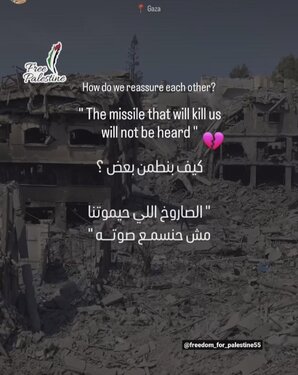
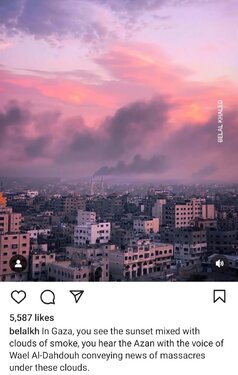


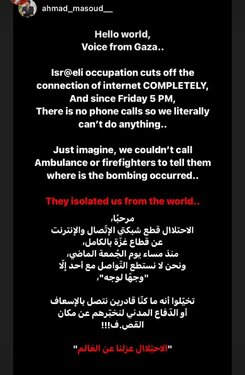
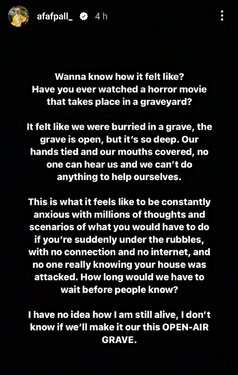
.thumb.jpg.a677ff2dd46f06c1ea7d876b7854d505.jpg)
